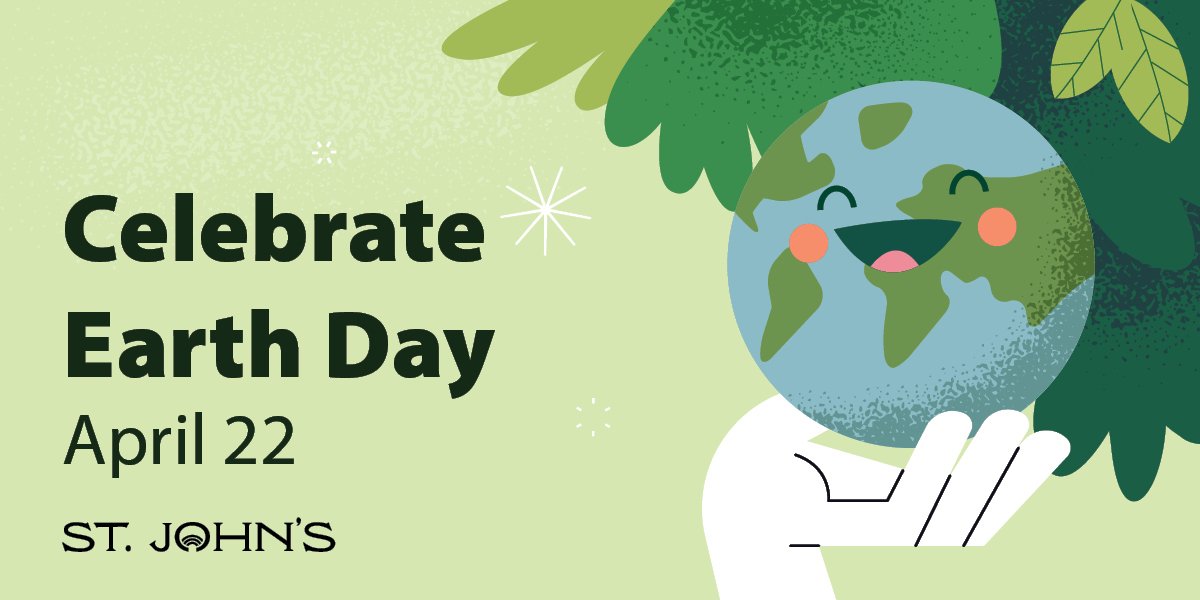Search

Earth Day has been celebrated on April 22 since 1970.
The 2025 Earth Day Canada theme is Biodiversity. Nearly 75% of the Canadian population cannot define biodiversity or understand how to act to preserve it, however a large majority want to receive information to better understand the issue and get involved.
The City of St. John’s is hosting events to celebrate Earth Day but also has a number of programs, services and policies that support, protect and enhance biodiversity in the community.
Residential ReLeaf
The Residential Re-Leaf program aims to enhance the streetscape and increase the presence of trees within the city. This initiative also helps the City achieve its goal of enhancing the existing urban forest by planting trees in residential areas and educating residents on the benefits urban trees provide.
The Residential Re-Leaf program allows homeowners within the City of St. John’s to apply for a $200 voucher towards the purchase of a tree to plant on their property. Since 2019, we have distributed nearly 600 vouchers to St. John’s residents. Applications for the 2025 program open in mid-May.
Naturalization
Active naturalization restores areas to more natural conditions using trees, shrubs and flowers that are native to the area. It helps preserve and celebrate the natural environment found in our region. Natural areas within our city, in the era of climate change, are our buffer which will help protect our neighbourhoods and community as a whole from changes in climate, and invasive species, while also providing a home for important pollinators such as bees and butterflies.
Small sections of numerous parks and open spaces have been planted to enhance naturalization since 2020.
Community Gardens & Composting
Community gardens are neighbourhood food assets as they help build local and sustainable food systems by improving access to nutritious, accessible and affordable food. The City of St. John’s has community garden plots, including raised beds and wheelchair accessible beds, available to individuals and groups interested in gardening.
Yard Waste Collection
Since 2018, the City requires yard waste to be put in paper yard waste bags for curbside collection due to the high economic and environmental costs of landfilling easily compostable material. We have composted more than 7,600 tonnes of yard waste in that time resulting in a reduction of greenhouse gas emissions by 228 tonnes which is equivalent to taking 72 passenger vehicles off the road for a year, and a savings of over $550,000 in tipping fees.
Compost Giveaway
Beginning on Earth Day Tuesday, April 22 compost will be available until the end of November to residents free-of-charge in the Residential Drop Off (RDO) at the Robin Hood Bay Waste Management Facility. The RDO is open 8 a.m. to 4 p.m. Tuesdays to Saturdays; residents must use the RDO entrance, bring their own buckets and shovel to load the compost, and all loads must be covered and secured before leaving the site. The compost is made from yard waste the City has been collecting in paper yard waste bags since 2018.
Backyard Composting
Backyard composting reduces climate changing emissions and returns much needed carbon back into the earth for healthy soil, trees and plants. The City of St. John’s, in partnership with Memorial University Botanical Garden and the MMSB, offer a free backyard composting information course both in-person and online which after completion residents can purchase a subsidized-cost backyard compost bin from the City.
Organize a Community Clean-Up
Looking for a meaningful way to make a difference in your neighbourhood? The City of St. John’s is here to help you organize a community clean-up!
The City of St. John’s is proud to carry on the work of Clean St. John’s by supporting local clean-ups across the city. Whether you're tidying up a trail, park, street, or shoreline, we’ll provide free garbage bags and help with proper disposal.
All you need to bring is your community spirit!
Let’s work together to Clean St. John’s – one bag at a time.
Stay aware of new programs and initiatives and subscribe to City news at StJohns.ca/Subscribe.
Contact Us





